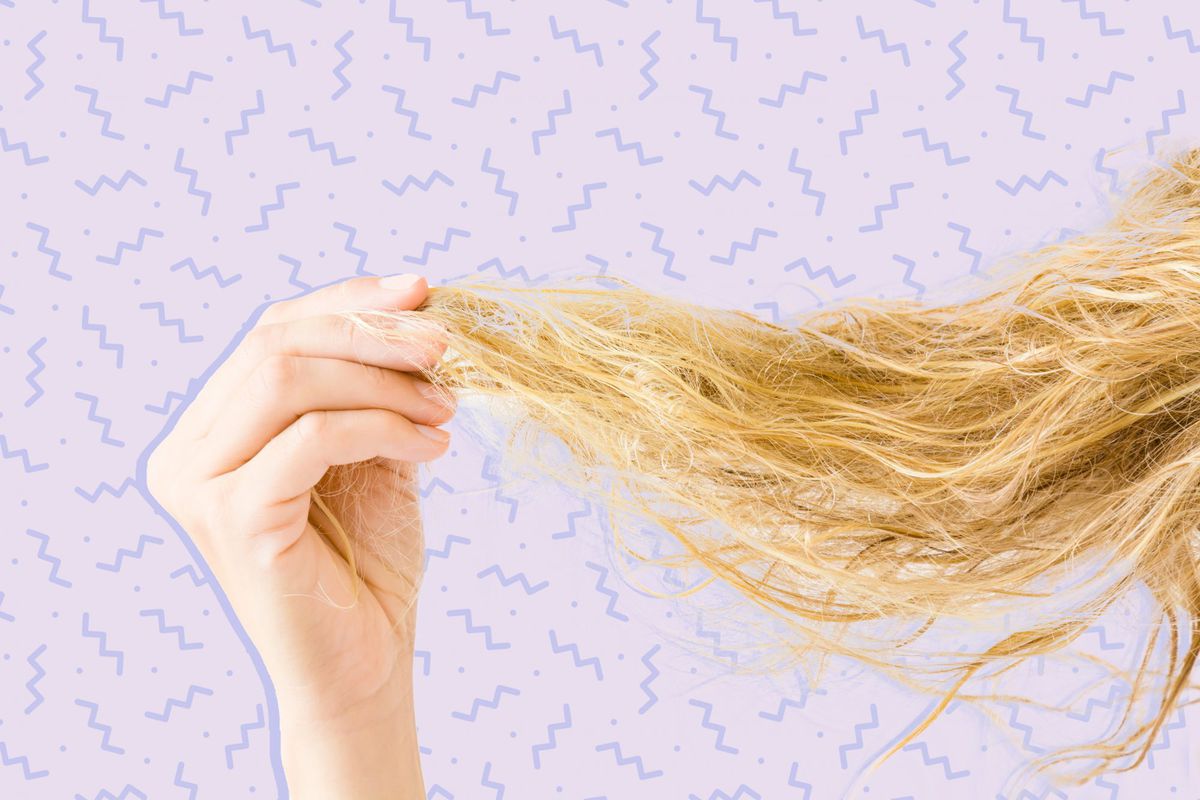When Shilah Calvert-Yin was born, there was seemingly nothing out of the ordinary about her hair, according to her mom Celeste—but what started off as soft, brown hair, quickly began growing "straight up and not flattening down." That's when Celeste knew something was off, according to a recent post on blog Love What Matters.
As Shilah got older, Celeste said her hair continued to grow straight up and got longer, though it never grew past a certain point. "It would instead just snap off at the root and seemed to be quite fragile," she wrote. "The knots and tangles were an everyday battle. If you tried to sort them out, she would lose quite a lot of hair just from brushing."
RELATED: Girl With Uncombable Hair Syndrome Rocks Her Rare Condition With Style
It turns out, Shilah actually has a rare disorder called uncombable hair syndrome—something she wasn't diagnosed with until she got older. In fact, Shilah's diagnosis didn't result from seeing a doctor about her hair at all: "However, it came a day when Shi was in the hospital for her teeth and the doctor who was caring for her asked us a telling question: 'Are you aware of uncombable hair syndrome?'"
Since being diagnosed, Shilah's become a sort of poster child for uncombable hair syndrome through an Intsagram account her mom Celeste runs. The account—which boasts 15,300 followers—is an attempt to help other people with the condition realize they aren't alone. "Comments have been both supportive and ugly at times, but it is an amazing platform to connect with those who want who support her, or somewhere they can say to their little one, ‘Look, you’re not alone. You’re not the only one and look at how this little girl rocks it!’" said Celeste.
What exactly is uncombable hair syndrome?
According to the Genetic and Rare Diseases Information Center, a division of the National Institutes of Health, uncombable hair syndrome is a rare disorder of the hair shaft of the scalp, in which the hair sticks out from the scalp and can't be combed down. “Hair shafts, which are normally round to oval in cross section, may have triangular cross sections or grooves along their length which do not allow the hairs to lie flat,” Shawn Cowper, MD, a Yale Medicine dermatopathologist and co-author of Atlas of Hair Pathology and Clinical Correlations, tells Health.
Dr. Cowper explains that hair is also typically light colored—sometimes silvery-blonde or straw, which lends to its other well-known name, "spun glass hair." The hair is also dry and breaks easily, though the quantity of hair often remains normal and just grows slowly, per the GARD. Other symptoms of the syndrome include coarse or kinked hair, and up to 29% of those who have the condition may also suffer from alopecia areata, or unpredictable hair loss.
Uncombable syndrome is extremely rare—according to the Genetics Home Reference, there are just 100 cases of it in scientific literature—and it typically first becomes apparent between the ages of 3 months and 12 years.
RELATED: Model Jeyza Gary Opens Up About the Rare Condition That Causes Her Skin to Shed Every 2 Weeks
What causes uncombable hair syndrome—and how is it treated?
There are three genes that have been associated with the syndrome, per the GARD: PADI3, TGM3, and TCHH—all of which are responsible for the formation of the hair shaft. In those cases, it's believed that inheritance is autosomal recessive, which means that both copies of the gene have mutations.
In other cases, when one family member has the syndrome, it's believed inheritance is autosomal dominant, meaning only one copy of a mutated gene is needed for the issue. It should also be noted that, per the GARD, someone can have uncombable hair syndrome without any noticeable differences in their hair—but there are differences only detectable by a microscope.
Fortunately, Dr. Cowper says that some cases “spontaneously improve as the patient ages.” Some individuals even having flat-lying hair with some normal or nearly normal texture by adulthood. While there is no treatment, per se, some research has found that biotin supplements may improve the condition, per the GARD.
To get our top stories delivered to your inbox, sign up for the Healthy Living newsletter
